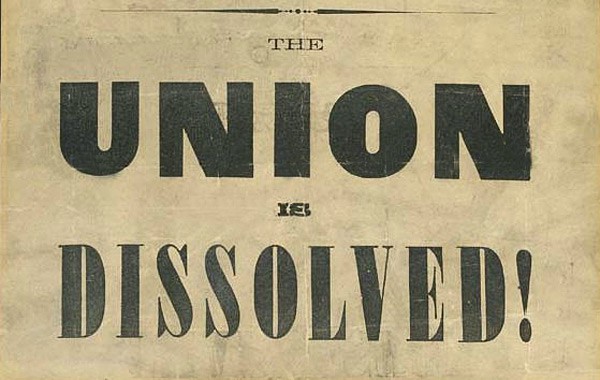
“I was a construction manager making good money; then my wife and kids died in a car accident. I couldn’t hold it together. I couldn’t move on after they were gone. I couldn’t work. I couldn’t sleep. I could barely eat. Before I knew it, my bank account was empty and that’s how I ended up here.” Standing inside a homeless mission, staring into the tearing up eyes of an older man I had stereotyped as a pothead who hadn’t stopped smoking since the ‘70s, I realized there is only one step between him and me. He didn’t drink, smoke or do drugs—he never had. We were the same.
I wanted to help, but his needs went beyond my capacity and a handout wouldn’t change anything. As people with cash, we want to help those without. However, the wise words of community developer Robert Lupton and others have taught us that our helping can hurt.
So what is the better method? How can we empower those in need? In the midst of this week’s National Hunger and Homeless Awareness Week, now is a critical time to reevaluate what the poor really need and how we might love and serve them. Looking at the life of Jesus, we can learn several things about treading this fine line between helping and hurting.
Real Giving is Slow Giving
It’s much easier to hand the homeless man at church a food card than it is to hear his story and help him find shelter and a job. When we give quickly, we are often being selfish—we’re choosing to demean the other person to a charitable cause and ignore the relational opportunity.
If we believe the neighbor Jesus calls us to love is any and every person, then we should also believe that people deserve our time and attention, not just our dollars (Luke 10:27). Everyone deserves the opportunity to tell their story and be loved as an entire person, not just a need.
Jesus is spontaneous in His helping—His miracles arose as a result of seeing a need—but He is also serious about His relationships. We see Jesus repetitively eating with people and stopping for discussions and questions—here is God with only three years of ministry time on earth, stopping to eat, drink and have conversation. This is how He works.
Jesus also stops to get to know those who are considered unlovable by His culture, like the Samaritan woman at the well (John 4:1–26). And in doing so, He keeps the focus on what God plans to do in their lives—He instills not just help but hope.
Serving Includes Listening
We all like to believe we’re right most of the time. And we all like to have solutions for other people’s problems, especially when it’s not up to us to implement them. We’re quick to assume we know what our hurting friends need and tell them so, but James says, “Every person must be quick to hear, slow to speak” (James 1:19).
Many of us assume those who are homeless who are not mentally, developmentally or physically disabled are simply lazy. This couldn’t be further from the truth. And our misplaced beliefs about the hurting can even make us angry. Jesus has some strong words about viewing others this way, “But I say to you that everyone who is angry at his brother will be subject to judgment, and whoever says to his brother, ‘Stupid fool!’ will be subject to the council, and whoever says, ‘Obstinate fool!’ will be subject to fiery hell.” That’s Jesus—compassionate, yet shocking.
Jesus is First and Foremost—Even Over Those We Serve
Christianity is about self-sacrifice, but if it’s not for the purpose and glory of Jesus, there really isn’t a point. We would love to tell others we believe it’s all about Jesus. Yet, our actions say we don’t. It’s obvious in how we give. We often give without researching the organizations we’re helping. And when we do research, our focus is often fiscal—what does my dollar accomplish?—not on Christ-inspired outcomes. We must ask, “How are lives being changed?”
For Jesus, the most important outcome possible is the glory of God. When on earth, He profoundly understood that everything should serve this purpose. He also understood that the connection to God’s glory came through His work on the cross, as the savior for God’s people. When we realize this, Jesus’ reasoning for allowing a woman to spend an entire expensive perfume flask on Him makes sense. Those around Jesus scold the woman, because the perfume could have been sold to help the poor. Jesus rebukes them, saying, “For the poor you always have with you, and you can do good for them whenever you want, but you do not always have me” (Mark 14:7). Jesus is foremost.
This is not to say that justice and mercy cannot be brought through non-Christian organizations, because it certainly can. Life change does that; life change also involving the good news of Jesus, though, is even better.
We Meet Jesus Himself in the “Least of These”
It’s easy to see those anthropologists call “the other” as so different that we can hardly relate. Most of us don’t know what it’s like to eat out of a dumpster, drink out of a puddle or live in a hut made of dung. But in mentally distinguishing ourselves from the poor, we miss a major point of Jesus’ theology.
In the midst of discussing forthcoming judgment, Jesus uses our view of “the other” type of people as a distinguishing factor between those who truly believe and those who don’t. He goes so far as to say that when we help—and based on His theology as whole, I don’t think He means just charity here—we actually meet Him (Matt 25:31–46).
We should give. And we should do so without thought to what others think (Matthew 6:1–3), with one exception—what Jesus thinks. Jesus cares about how you give, why you give and how you treat people. If we cared about what Jesus cares about, we would listen to what He has to say about our helping habits.






















